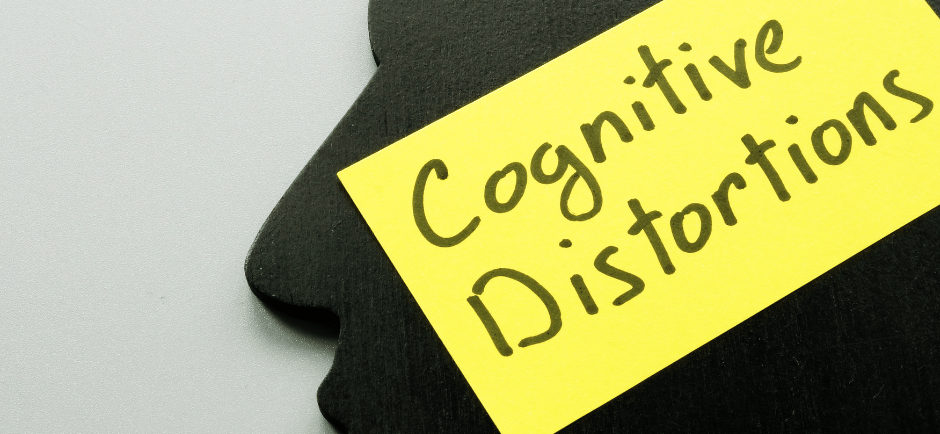Understanding Pornography Addiction and Cognitive Distortions | Cognitive-Behavioral Strategies
Explore the cognitive distortions and irrational beliefs that fuel pornography addiction. Discover effective cognitive-behavioral strategies to challenge and modify these distortions. Improve your ...


Understanding Pornography Addiction and Cognitive Distortions
Pornography addiction is a growing concern in today's society, with easy access to explicit content through the internet. It is important to recognize that addiction to pornography is not just about the act of watching explicit material, but also about the underlying cognitive distortions and irrational beliefs that contribute to the addiction. In this article, we will examine the cognitive distortions and irrational beliefs that underlie pornography addiction, particularly in relation to sex, relationships, and self-worth. Additionally, we will explore cognitive-behavioral strategies that can be used to challenge and modify these distortions.
The Role of Cognitive Distortions in Pornography Addiction
Cognitive distortions are irrational thoughts or beliefs that influence our perception of reality. In the context of pornography addiction, individuals may develop distorted beliefs about sex, relationships, and their own self-worth. These distortions can perpetuate the addiction and make it difficult for individuals to break free from the cycle.
Beliefs About Sex
One common cognitive distortion related to pornography addiction is the belief that sex should always be exciting, novel, and perfect. This belief is often reinforced by the unrealistic portrayals of sex in pornography. As a result, individuals may develop unrealistic expectations about their own sexual experiences and may feel dissatisfied or inadequate when their real-life experiences do not match up to what they see in pornography.
Another cognitive distortion related to sex is the belief that frequent and intense sexual experiences are necessary for happiness and fulfillment. This belief can lead to a constant search for new and more explicit material, as individuals strive to recreate the intense arousal they experience while watching pornography. Over time, this can lead to a tolerance for explicit content, requiring individuals to seek out increasingly extreme material to achieve the same level of arousal.
Beliefs About Relationships
Pornography addiction can also be influenced by distorted beliefs about relationships. For example, individuals may develop the belief that sexual gratification is the most important aspect of a relationship, overshadowing other important factors such as emotional connection, trust, and intimacy. This can lead to difficulties in forming and maintaining healthy, fulfilling relationships, as individuals prioritize sexual gratification over building meaningful connections with their partners.
Additionally, pornography addiction can contribute to a distorted view of relationships by promoting objectification and unrealistic expectations of partners. Pornographic material often portrays individuals as objects of sexual desire, rather than complex human beings with their own thoughts, feelings, and desires. This can lead to a lack of empathy and understanding in real-life relationships, as individuals may struggle to see their partners as anything more than objects for their own sexual gratification.
Beliefs About Self-Worth
Individuals struggling with pornography addiction may also develop distorted beliefs about their own self-worth. They may believe that their value as a person is directly tied to their sexual performance or their ability to meet the unrealistic standards portrayed in pornography. This can lead to feelings of shame, guilt, and low self-esteem when they are unable to live up to these unrealistic expectations.
Furthermore, pornography addiction can contribute to a negative body image, as individuals compare themselves to the idealized and often unrealistic bodies depicted in explicit material. This can further reinforce feelings of inadequacy and contribute to a cycle of addiction and self-destructive behaviors.
Cognitive-Behavioral Strategies for Challenging Cognitive Distortions
Cognitive-behavioral therapy (CBT) is an effective approach for addressing cognitive distortions and irrational beliefs associated with pornography addiction. CBT aims to identify and challenge these distortions, replacing them with more realistic and adaptive thoughts and beliefs.
One strategy used in CBT is cognitive restructuring, which involves identifying and challenging negative or distorted thoughts related to pornography addiction. This can be done by examining the evidence for and against these thoughts, as well as considering alternative perspectives. For example, individuals can challenge the belief that sex should always be perfect by recognizing that real-life sexual experiences are diverse and can be fulfilling in different ways.
Another CBT technique is behavioral experiments, which involve testing the validity of distorted beliefs through real-life experiences. For instance, individuals can experiment with engaging in non-sexual activities that bring them joy and fulfillment, in order to challenge the belief that sexual gratification is the most important aspect of a relationship.
Additionally, CBT may involve developing coping strategies to manage cravings and urges related to pornography addiction. This can include techniques such as distraction, relaxation exercises, and engaging in alternative activities that provide a sense of pleasure and satisfaction.
Conclusion
Pornography addiction is not solely about the act of watching explicit material, but also about the cognitive distortions and irrational beliefs that underlie the addiction. By understanding and challenging these distortions, individuals can begin to break free from the cycle of addiction and develop healthier beliefs about sex, relationships, and self-worth. Cognitive-behavioral strategies, such as cognitive restructuring and behavioral experiments, can be effective in challenging and modifying these distortions, ultimately leading to a more fulfilling and balanced life.


